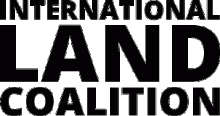Resource information
The Convention on the Elimination of All Forms of Discrimination against Women (CEDAW) is the only international treaty specifically focused on preventing discrimination against women and explicitly dealing with rural women and their rights (Art. 14). On 18 December 1979, the Convention was adopted by the United Nations General Assembly. It entered into force as an international treaty on 3 September 1981 after the twentieth country had ratified it.
CEDAW not only covers civil and political rights, but also draws attention to the economical, social and cultural dimension of discrimination. CEDAW is a key tool for advancing women’s rights at local and national level, both through monitoring its implementation and using it as a platform for advocating women’s rights.
The Committee on the Elimination of Discrimination against Women (CEDAW) is the body of independent experts that monitors implementation of CEDAW.
ILC has published the following reports and briefs related to CEDAW:
Rural Women’s Access to Land and Property in Selected Countries: Jointly published by FAO, IFAD and ILC, this report assesses progress towards achieving CEDAW articles 14, 15 and 16 (on rural women)
CEDAW update: an update of the tables of the above-mentioned report on progress of CEDAW implementation
CEDAW infonote and Q&A: a tool for CSOs interested in engaging with CEDAW (plus relevant links)


